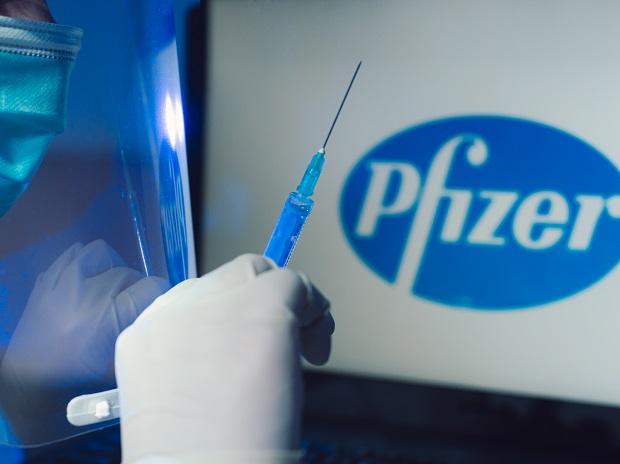People who received the Pfizer COVID-19 vaccine at a US hospital had dramatically lower symptomatic and asymptomatic infections compared with their unvaccinated peers, according to a study.
The research, published in the Journal of the American Medical Association, is among the first to show an association between COVID-19 Pfizer-BioNTech vaccination and fewer asymptomatic infections.
"While further research is needed, by preventing infections, including in people who have no symptoms, there is a high possibility that vaccination will decrease transmission of SARS-CoV-2," said Diego Hijano from the St. Jude Children's Research Hospital in the US.
The study involved 5,217 St. Jude employees who were eligible under Tennessee state guidelines for vaccination between December 17, 2020, and March 20, 2021.
More than 58 per cent of employees were vaccinated during that period. Most workers received both doses.
Overall, vaccination reduced the risk of asymptomatic and symptomatic SARS-CoV-2 infection by 79 per cent in vaccinated employees compared with their unvaccinated colleagues, the researchers said.
An analysis of asymptomatic infections alone found vaccination reduced the risk by 72 per cent, they said.
Researchers found that protection was even greater for employees who completed two doses.
A week or more after receiving the second dose, vaccinated employees were 96 per cent less likely than unvaccinated workers to become infected with SARS-CoV-2, they said.
When researchers looked just at asymptomatic infections, vaccination reduced the risk by 90 per cent.
During the study, 236 of the 5,217 employees included in the analysis tested positive for SARS-CoV-2.
They included 185 unvaccinated employees and 51 of the 3,052 workers who had received at least one dose of the vaccine.
Almost half of the positive cases, 108, reported no symptoms upon testing, the researchers said.
The asymptomatic cases included 20 employees who had received one vaccine dose and three who tested positive within seven days of the second dose, they said.
 Dear Reader,
Dear Reader,
Business Standard has always strived hard to provide up-to-date information and commentary on developments that are of interest to you and have wider political and economic implications for the country and the world. Your encouragement and constant feedback on how to improve our offering have only made our resolve and commitment to these ideals stronger. Even during these difficult times arising out of Covid-19, we continue to remain committed to keeping you informed and updated with credible news, authoritative views and incisive commentary on topical issues of relevance.
We, however, have a request.
As we battle the economic impact of the pandemic, we need your support even more, so that we can continue to offer you more quality content. Our subscription model has seen an encouraging response from many of you, who have subscribed to our online content. More subscription to our online content can only help us achieve the goals of offering you even better and more relevant content. We believe in free, fair and credible journalism. Your support through more subscriptions can help us practise the journalism to which we are committed.
Support quality journalism and subscribe to Business Standard.
Digital Editor

RECOMMENDED FOR YOU